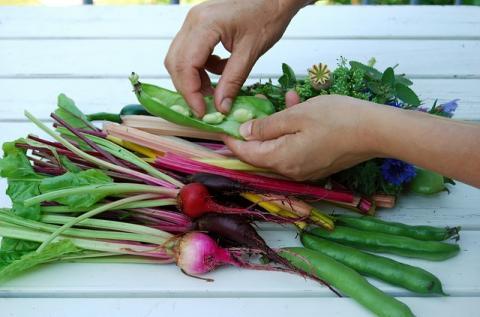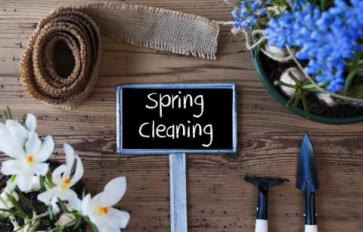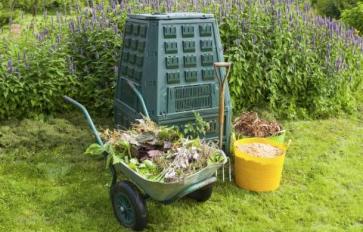
The Lazy Composter / Homemade Fertilizers From Waste
Couldn’t get compost right? Try these homemade fertilizers instead…
We all have heard or read about how great composting is for your garden. Not all of us have the time, the inclination or sometimes even the required outdoor space to have a compost (they can be smelly!). So, do we allow kitchen scraps to go to waste and rely on nursery-bought fertilizers instead? No, nothing that drastic! There are many simple tips and tricks to use kitchen waste to feed your garden but to bypass the compost pile in doing so. Let’s check out a few of them.
Direct Composting
The trick here is to let the soil and its resident organisms do all the work for you. Direct composting, also known as trench composting, is one way to add in kitchen waste such as peels and bones to the soil while planting. There are two ways to do this – one is by raking up an entire garden bed, digging in 12-14 inches deep and then just throwing in the whole kitchen waste (peels, egg shells, coffee grounds, used tea leaves, etc.) in along with some grass clippings, dead leaves and some moistened newspaper. Cover the waste with the raked up soil and leave it be for 2-3 months before you begin to plant.
The second way to do this, in case you missed the first one and are planting now, is to blend the waste in your mixer or food processor. As long as the peels, shells and other kitchen waste are fresh and unseasoned – your mixer and the soil will come to no harm from this mulch. When you dig the plant bed, dig deeper than usual -- say about 12-15 inches. Now drop in handfuls of this mixture in the hole that you’re planting in, cover with 8-10 inches of soil and then put in the seeds or saplings.
The soil as well its bugs and microorganisms will slowly breakdown this waste into plant-usable nutrients over time. Just make sure that the “compost” you are making has an even distribution of everything, lest it becomes too rich in one nutrient…
Mulching
Mulching is another method that adds an organic layer of nutrients on the top soil which slowly filters its way towards the roots. There are many ways you can make mulch. One of the simplest ways is to use crushed egg shells and coffee grounds in the same ratio. You can add these directly to the base of the plant or further grind them into a coarse powder before the application.
You can also make mulch by drying out the kitchen waste first. Put the peels in a tray and cover it with a wire mesh. This can be sun dried and could take between 3-7 days to dry up, depending on what all was there in the waste. Crush or grind the dried waste into a powder and use as mulch.
Another great way to make meal-mulch is to use discarded bones. If you eat a steady diet of fish and chicken, it’s likely your trash will have a steady supply of bones. Wash the bones well to get all the seasoning and bits of flesh off. Boil them further, discarding the soup and flotsam. Grind the leftover bones to make bone meal, which is excellent mulch for most plants.
High Tea?
You can also choose to turn kitchen waste (the vegetarian variety) into a compost tea. Fill a bucket 1/3rd full with the peels, cores and tops of veggies. Now fill up the rest of the container with slightly lukewarm water, cover it tightly and leave it out in the sun for 2-5 days. Open the container (perhaps with your nose covered) and scoop out the water. Spray this on blooming and fruiting plants as additional plant food. The soggy peels can be further used as trench compost.
Vinegar
A tablespoon of vinegar helps plants’ defense mechanism when they are diseased, underfed and infested with bugs. Spraying vinegar on plants accelerates germination, increases the yield and helps the plants fight off bugs and microbes better. A good ratio is one tablespoon of vinegar in one gallon of water, sprayed early in the morning before the bugs get active. Remember to not repeat this application before one month, lest the plants develop brown spots and burnt foliage.
Do you have any homemade fertilizer tip to share? Write in to us in the comments section below…








